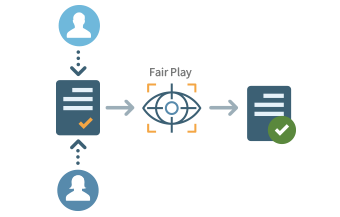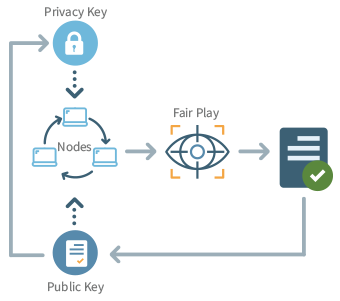Types of Smart Contracts
Don’t let yourself be confused by the simplicity of everything so far. As in the real world, where we have one-page contracts and sixty-page contracts, smart contracts to vary from simple to complex. From a digital value exchange, where one family member sends another family member some bitcoins, through basic smart contracts, where a landlord remotely locks tenants out of the property when they have not paid for extended periods of time or distributed autonomous organizations, where self-driving delivery trucks make deliveries, pay local road and toll taxes, but also buy local gas or electricity, all the way to distributed autonomous societies, where groups of people from different parts of the worlds establish complex self-enforcing trade agreements between the countries.
Simple
- Digital value exchange
- Smart right and obligation
- Basic smart contract
- Multiparty smart contract
- Distributed autonomous business unit
- Distributed autonomous organization
- Distributed autonomous government
- Distributed autonomous society
Complex
Objects of Smart Contracts
Like traditional contracts, smart or digital contracts have three main integral parts, also known as objects, namely signatories, subject of agreement and specific terms. The signatories are the parties signing the contract. In the example above, me and ABC insurance. The subject of the agreement is what we are signing a contract for. In the above example, the subject of the agreement is those $100. Important, the subject must always be something within the environment of the smart contract – the blockchain – for it to be able to serve its purpose. The smart contract must be able to “control” or hold the subject for everything to work as thought of. The specific terms are that if, then, else logic described in the example above.


